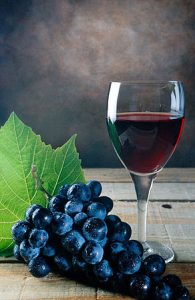How Does Resveratrol Work, & could it be what you have been looking for?
Resveratrol is a compound that is found in cranberries, raspberries, peanuts, pine trees and red grape skin. It is created as a defense-response to combat bacteria and pathogens that attack the fruits/plants. In this sense, it is a natural antibiotic. It gained significance after scientists investigated into the “French Paradox” which was named such because the French people ate a high fat diet and yet had a low incidence of heart disease. Researchers concluded that this could be  because the French people consumed a lot of red grape
because the French people consumed a lot of red grape
products, and in particular, red wine. Before reading too much further there are some quality trans resveratrol supplements that you should know about, so have a look at the link above. Read more about this amazing product athttp://en.wikipedia.org/wiki/Resveratrol
So, how does Resveratrol work? Many scientific studies and experiments have proved beyond doubt that it is a powerful compound that has anti-cancer, anti-aging and cardio-protecting properties. Here’s the lowdown on how each scientific study has established the compound’s functionality:
1. Resveratrol directly impacts the enzyme Sir2, a non mammalian enzyme, and helps extend the lifespan of non mammals. Likewise, it is believed that Resveratrol will similarly impact SIRT1, an enzyme that is present in mammals, and which is the equivalent of Sir2. Therefore, researchers conclude that Resveratrol will also help extend human life. To learn a little more about the side effects of resveratrol then read up here.
2. Scientists at the Department of Pathology, Harvard Medical School have discovered that consuming the compound makes people consume fewer calories. It is a well-known scientific fact that consuming fewer calories extends the lifespan for many species. The Harvard researchers found that consuming Resveratrol stabilizes DNA and activates enzymes that slow down the aging process. They concluded that the compound helps enhance the lifespan by as much as 70%. [1]
3. Another study by Paul F Glenn laboratories (also of the Harvard Medical School) proved that regular consumption of Resveratrol increased insulin sensitivity, reduced insulin-like-growth-factor levels, improved motor function and increased AMP-activated protein kinase (AMPK) of many species. These benefits result in a longer lifespan and also help many species on a high-fat diet stave off obesity. [2]
4. Matt Kaeberlein, a pathologist at the University of Washington, has established that Resveratrol prevents damage to liver tissue. He has concluded that the compound keeps away old age diseases by promoting the liver’s health. [3]
5. In another study published by Current Biology, it has been established that Resveratrol “reduces the expression of neurofibrillary degeneration in the brain” of short-lived seasonal fish. Fish that were fed on Resveratrol went on to live longer than fish that were fed a normal diet. The researchers also discovered that the compound also protects many species from ischema and neurotoxicity. [4] For further info check out the link https://www.resveratrol4life.com.au/side-effects.html
6. The Laboratory of Cell and Molecular Biology, University of Burgundy, has proved that Resveratrol is anti-cancerous. The compound stops the process of tumor initiation, stops tumor progression, and overturns the final steps of carcinogenesis [5]. Many other scientific studies have concluded that the compound helps promote heart health, is anti-inflammatory, and keeps Type 2 Diabetes at bay.
This is how the magical compound Resveratrol works and helps many species live longer and healthier on Planet Earth.
References:
[1] http://www.ncbi.nlm.nih.gov/pubmed/15254550?dopt=abstractplus )
[2] http://www.ncbi.nlm.nih.gov/sites/entrez?Db=pubmed&Cmd=ShowDetailView&TermToSearch=17086191
&ordinalpos=4&itool=EntrezSystem2.PEntrez.Pubmed.Pubmed_ResultsPanel.Pubmed_RVDocSum
[3]http://www.scientificamerican.com/article.cfm?id=the-fountain-of-youth-at
[4] http://www.cell.com/current-biology/abstract/S0960-9822(06)01020-7
[5] http://www.ncbi.nlm.nih.gov/pubmed/16611030?dopt=AbstractPlus